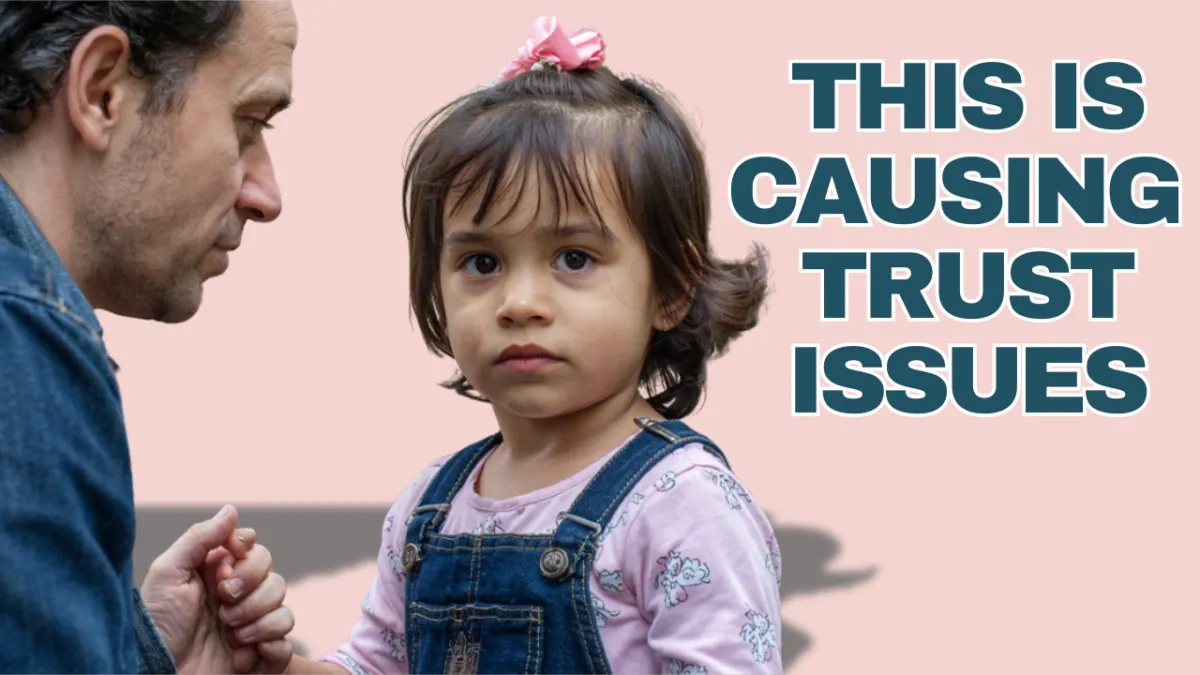
How to Avoid Causing Trust Issues in Your Child


What if I told you that the way you talk to your child — your tone, your words, even your facial expressions — can either help build deep trust... or quietly damage it?
When kids don’t develop a secure, trusting attachment with their parents, it can lead to long-term consequences. As adults, they may struggle to form close, healthy relationships or trust others in meaningful ways. But knowing that can be overwhelming for a parent — how do you speak warmly and lovingly without letting behavior spin out of control?
Let’s break it down. First, I’ll walk you through how to speak sweetly to your child. Then, we’ll cover how to maintain firm boundaries while still using a warm tone. Finally, we’ll talk about what happens when the warmth is missing — and why it matters more than most parents realize.
1. How Do I Speak Sweetly to a Child?
Speaking sweetly doesn’t mean being fake or overly indulgent. It simply means being intentional about how you speak — your tone of voice, your word choice, and even your body language.
For younger children especially, that often means being a little more animated than usual. Think of it like channeling a kind, nurturing character — someone deeply invested in making their child feel loved and seen.
Here are a few everyday examples:
Greeting in the morning: “Good morning, sweetie! It’s so nice to see you today. Did you sleep well?”
When they’re hurt or scared: “Oh no, are you okay? What happened? There, there...” (while offering gentle physical reassurance).
When they’re telling a story: “Oh, that’s very interesting! Why do you think that happened?”
The good news? There’s no magic trick. Most parents already feel this love — they just may not always express it in ways their child clearly picks up on.
As your child gets older, your tone can (and should) shift. Teens tend to prefer a more relaxed, respectful tone over the high-energy style that works for toddlers. The key is to match your energy to your child’s developmental stage while staying warm and connected.
Don’t forget: your nonverbal cues matter just as much as your words. A kind voice doesn’t go far if it’s paired with crossed arms and a furrowed brow. An open posture and a soft smile help reinforce your intention and build emotional safety.
2. Will Speaking Sweetly Make Me a Pushover?
A common fear for parents is that if they speak too kindly, they’ll lose control or seem weak. But that couldn’t be further from the truth.
In fact, research shows that the most effective parents — the ones raising resilient, well-adjusted kids — are those who combine warmth with firm boundaries.
Psychologist Diana Baumrind’s decades of research identified four parenting styles. The two we’ll focus on are:
Permissive parenting: High warmth, low boundaries — often results in behavioral issues.
Authoritative parenting (what I call “amazing parenting”): High warmth, high boundaries — leads to better emotional regulation, decision-making, and long-term mental health.
This “amazing parent” style helps children feel loved and safe and understand what’s expected of them.
So what does that sound like in real life? Let’s take a look:
When your child speaks rudely:
“I don’t like being spoken to like that. Please try again.”When your child is upset in the car, kicking their seat:
“I’m happy to help you look for your stuffy, but you need to stop kicking first so I can reach safely.”When they’re frustrated about screen time:
“I know it’s hard to wait. How about some Tic Tacs to snack on until we get to the highway?”
These are all examples of sweet firmness — calm, clear communication that honors the child’s feelings while also setting boundaries. With a little practice, it becomes second nature.
3. What Happens If I Don’t Speak Sweetly to My Child?
Here’s where the stakes get higher. Speaking sweetly is more than just nice parenting — it’s foundational to your child’s emotional development.
There’s a concept in developmental psychology called attachment. It’s the emotional bond that forms between a child and their primary caregiver — and it’s the lens through which your child views relationships for the rest of their life.
When kids don’t feel emotionally safe with their parents — when warmth, consistency, and empathy are lacking — they may:
Be less likely to open up about important things
Be more sensitive to stress
Struggle with emotion regulation
Develop difficulty trusting others as adults
One story that comes to mind: a six-year-old once said to me, “I love you. You talk so sweetly to me.” Then she compared that to another adult in her life and added, “I don’t trust her.” That hit hard.
The good news? You don’t have to be perfect. You just need to be consistent. Children are remarkably resilient when they have even one consistently warm, responsive caregiver in their life.
Research — including long-term studies like the Kauai Longitudinal Study — has shown again and again that children with secure attachments are more likely to grow into well-adjusted, trusting, emotionally healthy adults.
Your tone of voice. Your body language. Your patience and empathy. It all adds up.
Final Thoughts: Speak Sweetly, Hold Boundaries, Build Trust
If you take one thing from this post, let it be this: you can be warm without being permissive. You can be firm without being cold.
Speaking sweetly and setting healthy boundaries is the winning combo that builds deep trust and emotional connection — now, and for the future.
So try it out this week. Greet them warmly. Listen with intention. Set the limit, but with kindness.
And remember: parenting isn’t black and white. There will be off days. Just aim for consistency, and trust that the effort you’re making truly matters.
